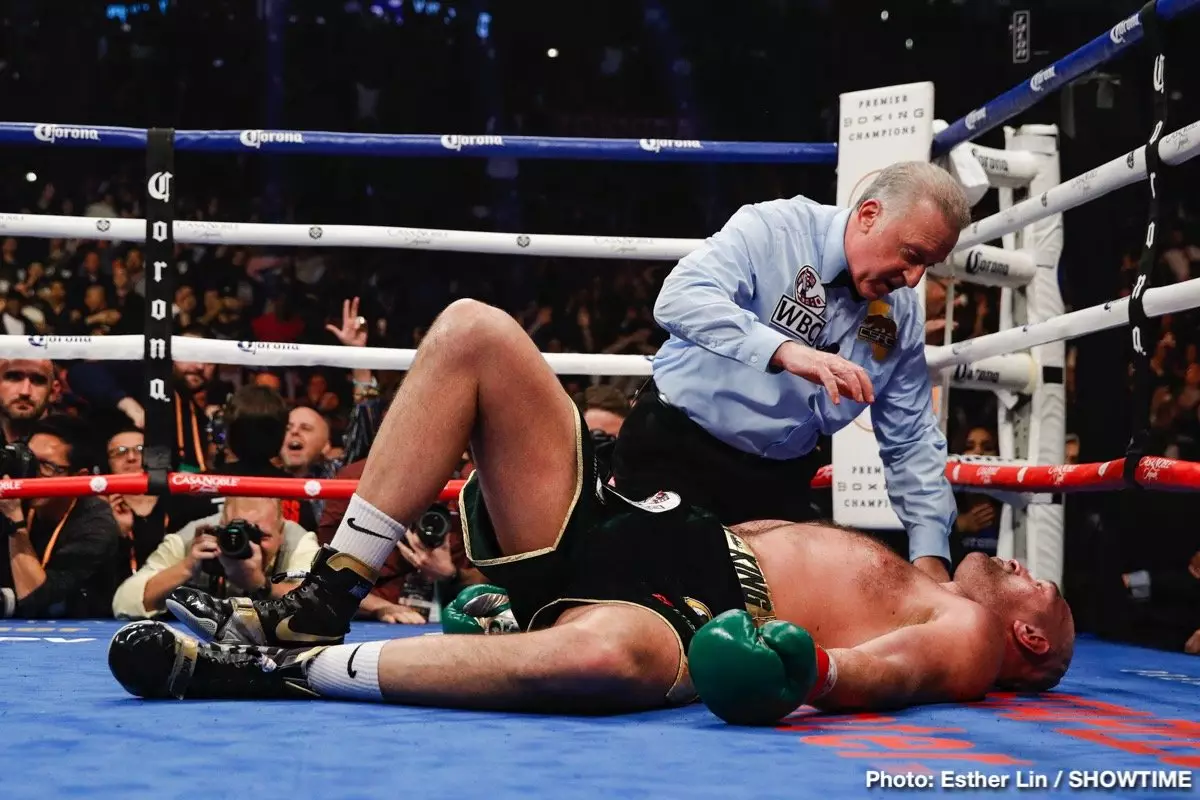The Gray Area of Boxing Judgments: Fury’s Perspective on Fairness and Controversy
Boxing is a sport that has always fascinated me, not just for the physical prowess displayed in the ring but for the intricate drama that unfolds with every match. As someone who loves a good story, I find the narratives surrounding boxing, filled with triumphs and controversies, incredibly captivating. Recently, Tyson Fury, a name synonymous with heavyweight boxing, has sparked a conversation about fairness and justice within the sport. His perspective offers a fresh lens through which to view the often contentious world of boxing judgments.
Fury’s recent comments came as he prepared for his highly anticipated rematch with Oleksandr Usyk in Riyadh. The British heavyweight champion’s take on the subject resonated with me because it challenges conventional views on what constitutes fair play in boxing. He argues that there are no “robberies” in the sport—a statement that certainly caught my attention. It’s not just a bold claim but one that invites us to delve deeper into the subjective nature of boxing judgments.
As you might expect, Fury’s stance isn’t without controversy. His belief that judges’ decisions stem from personal interpretations rather than objective truths brings to light the complexities inherent in evaluating a boxing match. It’s a topic that’s bound to stir debate among fans and analysts alike, but it’s also an opportunity to reflect on how we perceive fairness in such a subjective arena.
Key Takeaways
- Fury believes there are no “robberies” in boxing, emphasizing the subjectivity of judging.
- Judges’ varying interpretations can lead to controversial outcomes in fights.
- The role of referees is equally significant and can influence fight results.
The Subjective Nature of Boxing Judging
Fury’s assertion that there are no robberies in boxing is rooted in an understanding of subjectivity—a concept that resonates deeply with anyone who watches this intense sport. When you think about it, every judge at ringside brings a unique perspective shaped by personal experiences and philosophies about what makes a fighter victorious. This means that two judges sitting side by side might see entirely different things in the same fight, leading to scores that can seem at odds with one another.
This subjective nature is evident in Fury’s previous encounter with Usyk. Despite what many believed was a clear victory for Usyk, one judge controversially scored the contest in favor of Fury. This discrepancy highlights how judges prioritize certain aspects of fighting—such as aggression or defense—differently based on their interpretations. For those of us watching from home or from the stands, it’s a reminder that what’s obvious to one person may be less so to another.

The Role of Referees
While Fury shines a light on judging discrepancies, he notably sidesteps an equally critical examination of referees’ roles in boxing. Referees are tasked with making split-second decisions that can dramatically alter the course of a fight. Their judgment calls are as influential as those made by judges, often playing a pivotal role in the outcome of matches. Consider Fury’s first bout against Deontay Wilder; referee Jack Reiss made a decision during this fight that continues to be debated among fans and experts alike.
The referee allowed Fury to continue after being knocked down—an event many viewed as being handled improperly due to the perceived slow count. Such moments underscore how referees’ decisions can make or break fights, leading us to question where authority truly lies within the ring. It’s clear that these officials hold immense power over fighters’ careers and legacies, whether they intend to or not.
Impactful Decisions and Their Consequences
The fine line between life-saving decisions and career-altering errors looms large during high-stakes matches—a reality all too familiar to fighters like Fury. The expectation is for referees to make instantaneous calls that ensure both safety and fairness; however, this task is seldom straightforward. Each decision has far-reaching consequences, affecting not only immediate outcomes but shaping future opportunities for boxers involved.
Take Fury’s past bouts against John McDermott as an example. In their first fight, many spectators felt McDermott deserved victory based on his performance; yet, it was Fury who emerged triumphant due largely to favorable scoring by officials present at ringside. This scenario epitomizes how deeply intertwined subjectivity is within boxing—it remains pervasive even amidst expectations for objective assessments.

Perceptions Versus Reality in Boxing History
The conversations around pivotal moments like these often reverberate through boxing history long after final bells have rung—a testament both to its enduring allure and complexity surrounding fairness debates therein. They challenge notions suggesting decisions are made strictly based upon merit alone while exposing murkier aspects lurking beneath surface-level perceptions held by audiences worldwide.
As fans dissect past performances over time (and let’s face it—we do love analyzing those epic bouts), discussions inevitably arise regarding integrity across judging/refereeing spectrums alike—laying bare landscapes where individual perspectives seemingly reign supreme above consistent standards expected within competitive sports environments today more than ever before perhaps!
Final Thoughts
As Tyson Fury gears up for his rematch with Oleksandr Usyk—a duel sure to captivate audiences globally—his comments serve as an introspective lens into scoring complexities inherent within professional boxing itself! While dismissing notions pertaining robbery claims outright may seem provocative initially (if not downright contentious!), historical tapestry woven throughout storied past suggests otherwise entirely…indeed ongoing debates surrounding refereeing/judging decisions promise continuation alongside sport itself indefinitely moving forward undoubtedly too!
Ultimately though? Belief held steadfastly by champions like Mr.Fury himself concerning inherent subjectivity transcending mere discussions centered solely around wins/losses alone invites broader examinations involving moral/ethical frameworks underpinning governance structures operating behind scenes silently shaping destinies unfolding before our very eyes collectively together always henceforth eternally onward bound undeniably assuredly forevermore!
boxing Tyson Fury boxing judgments subjectivity in sports


Leave a Reply